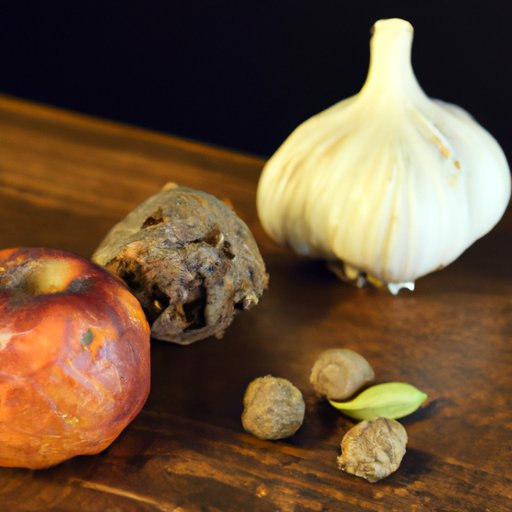
I. Introduction
Coughing is a common problem that can be disruptive to daily life. It can be caused by various conditions, including allergies, colds, flu, and respiratory infections. While coughing can serve as a warning sign that something is not right in your respiratory system, it can also be annoying and exhausting. This article aims to provide natural and herbal remedies, breathing techniques, and guidance on seeking medical help or using over-the-counter remedies to manage coughing.
II. Natural Remedies to Soothe a Cough
Drinking warm tea with honey, gargling salt water, or using a humidifier in the bedroom at night can help soothe a cough. Warm liquids can ease throat irritation, while saltwater can reduce inflammation. Adding eucalyptus, chamomile, or lemon to your homemade tea can help alleviate coughing. Here is an easy recipe for chamomile tea:
– 2 tbsp dried chamomile flowers
– 1 cup of boiling water
– 1 tsp honey (optional)
Steep the chamomile flowers in boiling water for 5 minutes, strain the liquid, and add honey if desired.
III. Herbal Remedies for Cough Relief
Herbal remedies can help alleviate coughing and soothe irritated airways. Marshmallow root, licorice root, and ginger are among the most effective herbs for cough relief. Marshmallow root can help ease inflammation, while licorice root can soothe irritation and suppress coughing. Ginger contains compounds that have anti-inflammatory and analgesic effects and can help break up mucus. You can drink herbal teas with these ingredients or take them in capsules or tinctures:
– Marshmallow Root Tea
– Licorice Root Tea
– Ginger Tea
IV. Breathing Techniques to Help Alleviate a Cough
Deep breathing, pursed-lips breathing, and diaphragmatic breathing exercises can help open up airways and reduce coughing. Deep breathing involves inhaling deeply through your nose and exhaling slowly through your mouth. Pursed-lips breathing involves exhaling through pursed lips, which creates resistance and helps relieve trapped air. Diaphragmatic breathing involves breathing from your diaphragm rather than your chest, which can improve oxygen flow to your body.
V. When to See a Doctor for a Persistent Cough
While most coughs go away on their own, a persistent cough can be a sign of a more serious condition, such as asthma, chronic obstructive pulmonary disease (COPD), or pneumonia. If coughing persists for more than two weeks or is accompanied by other symptoms like fever, chest pain, or difficulty breathing, you should see a doctor. A doctor may conduct a physical examination, tests, and imaging, depending on the severity of your symptoms.
VI. Over-the-Counter Remedies for Cough Relief
If natural remedies, herbal remedies, or breathing techniques do not alleviate your cough, you may consider over-the-counter cough suppressants or expectorants. Cough suppressants work by reducing the urge to cough, while expectorants help loosen mucus so that you can cough it up more easily. Antihistamines can also help alleviate coughs caused by allergic reactions. However, these remedies may have side effects, such as drowsiness or dizziness, and may not be safe for all individuals. Be sure to consult a doctor or pharmacist before taking any new medication for cough relief.
VII. Conclusion
Coughing can be annoying and exhausting, but there are several ways to alleviate it naturally. From drinking warm tea with honey and gargling salt water to using herbal remedies like marshmallow root and ginger and trying breathing techniques like diaphragmatic breathing and pursed-lips breathing, there are many options to explore. However, if your cough persists or is accompanied by other symptoms, it is crucial to seek medical help. Remember, while this article can guide you in finding relief from coughing, it is always best to consult with a qualified medical professional when dealing with a persistent cough or any other health concern.




